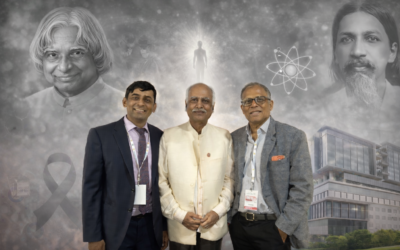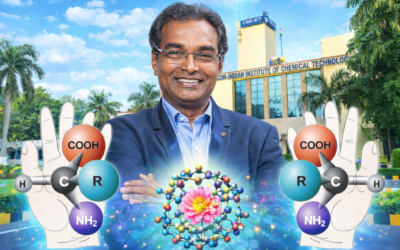Can Indian democracy solve real issues?
The elections are on; all news on television is breaking news, and social media is abuzz with forwarded messages. Indians celebrate elections as the festival of democracy. It has indeed become a carnival now – turncoat politicians, stale rhetoric, cliché slogans and debates about allegedly important issues which have surprisingly managed to survive seven decades of politics! I waited throughout the election campaign for good vision from some politicians, but all that was talked about were threats to national security, social inequality, loan waivers and anti-poverty payments to millions of people. No leader, I repeat, no leader, spoke about the serious threat of energy dependence to the future of the Indian economy. Poverty, social inequality and the biggest threat to national security all revolve around India’s dependence on oil imports and expensive diesel generators, and the resulting shortage of grid electricity to power small industries 24×7.
I watched the enthusiasm of young voters on Facebook with amusement. Do they really know how politics works, or how election donations are made? Major firms lobby their business interests through elected representatives. They do not post a ‘like’ on any Facebook pages, but buy ‘electoral bonds’ and place them well on pieces of their choice on the chessboard of Indian politics. They craft coalitions to decide which laws are to be blocked and which are to be passed. They do not voice their interests on Twitter or in chat rooms, but during meetings in five-star hotels and in their board rooms.
The most opaque of all Indian businesses is the business of Energy. Who really owns Indian oil companies? Who decides the rates of petrol and diesel? Why are they still not covered under GST? Why is the law of getting 10% of your electricity from renewable sources not enforced? Why is shale gas not pursued as an energy source? Why are planned nuclear power projects not taking off? Who is blocking them? And why are Indian companies dragging their feet in the African energy market, instead of grabbing it with both hands? At the root of all these issues, is the single question – why are our politicians not raising these questions?
In 2012, American author and energy expert, Daniel Yergin (b. 1947) published a very thoughtful book, The Quest: Energy, Security, and the Remaking of the Modern World. Dr APJ Abdul Kalam mooted the idea of Energy Independence by 2030. We covered it in our book, Squaring the Circle (2013). Dr Kalam’s idea of Providing Urban Amenities in Rural Areas (PURA) spoke about providing energy to the village industry at the turn of the new millennium. The biggest reason for poverty in India is our energy poverty. The business of energy is, after all, a global business, affecting every single local business. We are paying close to USD 100 billion to buy petroleum every year. Our supplies from Iran are not in our control. China holds sway over most of the African oil market. We can’t afford the old-fashioned way of importing oil. We need to generate our own energy – solar, wind, nuclear, whatever. If India wants to be big, it has to be big in big things. And Energy is one of those big things.
The worst part of our democracy has been our inability to make big decisions and rally around them. Let the next Prime Minister of India show the authority to forge an integrated national energy system from the patchwork we have now. Let the next Prime Minister display the artistry to weave together the interests of the millions of poor Indians who face the real consequences of rising Energy costs and the havoc they play with their livelihoods. Let the next Prime minister cut through the legacies of big energy businesses, shut off all the pleading special interests, find a way through the great Indian bureaucratic maze, and create a top-down order of energy pricing, regulations and standards, above all not succumbing to the pressure of sponsored TV debates, fake news and corporate lobbying. Let the swearing in of the new government in May 2019 see the emergence of a Ministry of Energy Independence.
The Indian economy is indeed under the siege of oil imports. The nation can’t assert itself on the global stage without having energy independence. It is time that electoral politics gives space to developmental politics and some long-term strategic decisions are taken by the Parliament that go beyond which party is in power and which is in the opposition.
MORE FROM THE BLOG
Those Who Transcend the Known
The best part of my career has been meeting eminent people and learning—often quietly—about the many facets of human excellence—something missed by those who pursue excellence in their own fields and live within their silos and echo chambers. Even now, when I travel...
The Alchemy of the Balcony
I have been deeply engrossed in reading Shakespeare for a while. It remains one of the most astonishing paradoxes in literary history that Romeo and Juliet—a drama pulsing with murder, deception, impulsive rebellion and ethical transgression—has been remembered across...
A Scientist and a Gentleman
In every civilisation, there are two measures of success. One is public and noisy—titles, awards, positions, headlines, and the temporary glow of importance. The other is almost invisible: the quality of a human being. History remembers the first for a moment and the...





Can Indian democracy solve real issues?…For the past 5 years, Modi and his team assured us that there was never a dull moment in Indian politics. Hardly had the rumpus over Lalit Modi’s close acquaintance with V Raje, S Swaraj and big names died, we had the diverting spectacle of protests over the proposed Citizenship (Amendment) Bill, 2016 followed by demonetization leading to serpentine queues that continued to grow longer, an increase in death toll, suicides and murder. Magnitude of scams not only surprised the general public but also investigative agencies.
A man under who the Gujarat government failed deliberately in its duty to uphold the constitution is our PM. Sadly, the news about Godhra didn’t stop the union government of the day from suspending the parliament session and do the needful. Shameful, there was a delay in deploying the army too. Bhakts may please hold on before arguing that our PM has not been found guilty by the judiciary and so he is innocent. If you do so, that would only expose our democratic deficit. People re-electing him to power in 2002 wasn’t washing him of his sins.Local incidents of violence, a result of a terror crusade will create fear and mobilize threatened voters. If EVMs weren’t hacked then the electorate can also make mistakes. Remember, Hitler was also democratically elected. Can the man responsible for the Gujarat carnage uphold ‘democracy’, ‘human rights’ and ‘natural justice’?
This time too, BJP worked hard to harness the unique Indian conservatism centred on culture or tradition or religion to its political cause. if or not the EC overcame all hurdles to conduct a free and fair election is for us to ponder.
In Indian democracy most of the lead politicians play petty politics to gain votes from illiterate people. They are not serious about the socio cultural, political and economic aspects.
Very well explained Sir. You should be the advisor to the Indian Govt on the energy issue and other issues as well. The legacy of Dr.A.P.J.Abdul kalam and his vision of Idia becoming superpower is with you.
Regards.